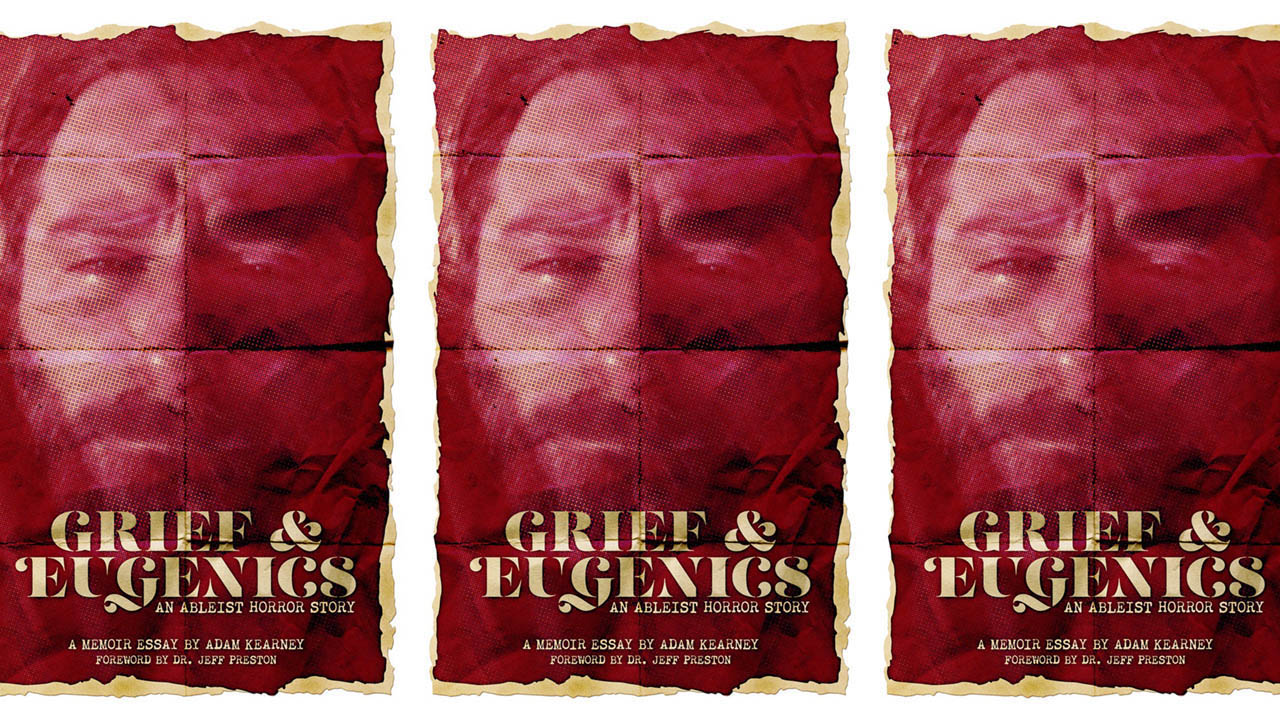Grief & Eugenics: An Ableist Horror Story, Part 12
 CREDIT: ADAM D. KEARNEY
CREDIT: ADAM D. KEARNEYIn this penultimate part of this essay, Adam states that there are two main factors that continue to cause the community of people who identify as having disability to grow: Environment and Aging.
This article is Part 12 in a series of excerpts from Fanshawe grad Adam D. Kearney’s essay, Grief & Eugenics: An Ableist Horror Story.
Isn’t this what fascism looks like? The thing that the Nazis didn’t realize was that you can never have a society completely free of disability. After you exterminate an entire population, people will continue to acquire disability in any number of ways.
There are two main factors that continue to cause the community of people who identify as having disability to grow: Environment and Aging. Global pandemics and climate change are only going to get worse as time moves on. Not only was COVID particularly worse for anyone with a disability, but it also has left millions of people with lasting physical and cognitive effects from their infection. The pollutants we put into the air, soil and water are proving to have lasting effects on our environment and our bodies. The geographic area I am writing this in has the highest percentage of heart disease and cancer. It is also located 45 minutes away from a place lovingly called Chemical Valley. Not to mention disability acquired from storms and wildfires which continue to grow in severity.
A fun fact that many people who currently do not have a disability are unaware of is that the only way not to acquire a disability in your life is to die before you do. It’s just the facts. I could list any number of disabilities that are more prevalent in the population of people over 55, but this essay has really already gone on long enough already. Why does it seem we are so hell bent on maintaining this status quo that people with disabilities are inferior? The disabled community holds a great wealth of shared knowledge. We have had to navigate systems which were not designed with our existence as a consideration. The fact that we still exist and often thrive in the most unique ways speaks volumes. With the pandemic we have found new ways to make tighter connections online to share information and compassion. We should shift the way society views disability and open up to the ways in which we need to start listening to the new generation of disability doulas. Wait, what?
To be continued…
This memoir essay was published as a zine in Jan. 2023. If you enjoy it and feel you would like to support the author, you can find a pay what you can PDF or purchase a physical copy at handcutcompany.com.
Editorial opinions or comments expressed in this online edition of Interrobang newspaper reflect the views of the writer and are not those of the Interrobang or the Fanshawe Student Union. The Interrobang is published weekly by the Fanshawe Student Union at 1001 Fanshawe College Blvd., P.O. Box 7005, London, Ontario, N5Y 5R6 and distributed through the Fanshawe College community. Letters to the editor are welcome. All letters are subject to editing and should be emailed. All letters must be accompanied by contact information. Letters can also be submitted online by clicking here.















